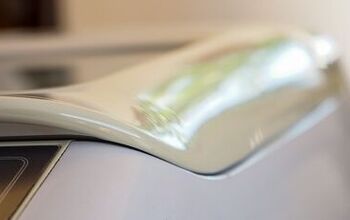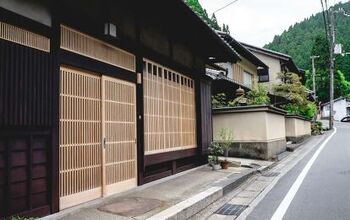What Is A Good PSI For A Pressure Washer?

Adding a pressure washer to your cleaning and maintenance arsenal is a major step. It opens up all sorts of cleaning opportunities, and allows you to perform cleaning that you would not be able to accomplish otherwise. It also makes other tasks a breeze that would take you significantly longer without the help of a pressure washer. But as you begin your search for the right pressure washer, one important factor you need to understand is what the best PSI is for the pressure washer of your dreams.
The ideal PSI for your pressure washer depends on what you will use it for. Most cleaning and washing projects around the home require a PSI between 500 and 3,000. Make sure you purchase a power washer that has an adjustable PSI range. This allows you to increase and decrease the PSI based on the task at hand.
As you embark on your search for the perfect pressure washer, you should understand what they do and what you want to use it for. The perfect pressure washer for one person may be fairly useless to another. This is because each project requires a specific PSI in order to clean it without also damaging it. Understanding PSI is the first step in the right direction when you are looking to make a pressure washer purchase.
Pressure Washer PSI And Why It Is Important
When it comes to understanding a pressure washer and its capabilities, much of it boils down to its PSI. PSI stands for pounds per square inch. It is a measurement that explains exactly how much force the water will shoot out. Simply put, the higher the PSI number, the more power the water will have when it comes out of your pressure water. A low psi means a gentler flow.
Some pressure washers come with a small range, while others have variable or adjustable controls. These controls can allow you to adjust the PSI levels from very high, to much lower. It is important to know the maximum and minimum numbers of your pressure controls. This will determine its range in PSI, and will therefore determine what you can use your pressure washer for.
What You Use A Pressure Washer For Will Determine The PSI
If you are on the hunt for a pressure washer that has the “perfect” PSI, you need to rewind and first understand what you need a pressure washer for. What might be an ideal PSI for someone who needs a pressure washer to detail his car and window treatments will likely not be nearly strong enough for someone who needs to clean up oil and grime out of cement on a regular basis.
Therefore, if you want to know what a good PSI is, you need to know what different levels of PSI are capable of. You also need to understand what most common tasks require when it comes to pressure washer PSI.
What Is A Good PSI For General Pressure Washing Needs?
If you are looking to add a pressure washer to your cleaning regimen, then you will want a pressure washer with a good PSI range. For most household needs, you will require a pressure washer that can operate between 500 PSI and 3000 PSI.
Generally, electric pressure washers can be found with a range up to 1,700 or 2,000. This can work also, just expect some projects to take longer to lift dirt and stains. Gas power washers tend to pack more punch, with a typical PSI of between 2,000 and 2,800. Just make sure if you get a stronger power washer it has an adjustable range that allows you to use it at a lower PSI. As you will see later in this article, there are several pressure washer uses that require the PSI to be below 1,500.
Understanding The Scope Of PSI Categories
One of the best ways to get a feel for what a good PSI for your pressure washer is, is to understand what certain PSI levels are capable of. Here is a breakdown of what you can expect from different PSI levels.
Below 1,000 PSI. This PSI strength is used for power washing and cleaning areas that are potentially vulnerable. For sensitive glass, painted furniture, thin vinyl and soft woods, you likely need a PSI of 500. A PSI of 1,000 is generally considered safe on many surfaces, but too weak for many touch stains.
1,000 PSI To 2,000 PSI. Pressure between 1,000 and 2,000 is also used for general washing and cleaning. This pressure is a bit stronger and used on more sturdy surfaces, but 2,000 PSI is generally the cutoff before the pressure can start damaging most paint jobs and even scratching the surface.
2,000 PSI To 5,000 PSI This is another popular range of pressure. When an area is more sturdy and requires a deeper cleaning, it often requires a minimum of 2,000 PSI. While this is not technically considered “high” pressure, it can damage many surfaces, and should be used only after confirming the surfaces can handle this amount of pressure.
5,000 PSI To 10,000 PSI. Anything 5,000 PSI to 10,000 PSI is considered more high pressure cleaning. This category is more reserved for specific tasks, and often used more by professionals rather than those performing general cleaning or DIY projects. This high pressure can damage many surfaces, and should be handled by those who are very familiar with this equipment.
10,000 PSI To 25,000 PSI And Above. This is considered ultra-high pressure cleaning. Most machines do not operate at this level. This level of pressure is often reserved for specific machines with specific jobs. It is unlikely you will encounter a machine with this high of a PSI in your casual search.
Most Common Pressure Washer Uses And Their Ideal PSI
Car Washing
Car washing and detailing is one of the most common uses for a household pressure washer. They are excellent at getting into your vehicle’s small crevices. After all, when you get your car professionally washed and detailed, they use a pressure washer. The best PSI for car washing is between 1200-1900 PSI. If you go above 2,000 PSI you begin to run the risk of scratching the surface with the water pressure, or chipping the paint job on your vehicle.
Window Washing
Window washing is another common task undertaken by power washers. Windows can often be hard to reach and clean. Using a power washer significantly simplifies the job, and produces great results. The ideal water pressure for cleaning windows is between 1200 and 1500 PSI. It is best not to go much higher than 1,500 PSI, as you can risk cracking or destroying some windows. If you have particularly sensitive windows, you may want to go even lower than 1,200 or 1,000 PSI.
Home Exterior Washing
Another great use for a power washer is washing your home’s exterior. Homeowners cannot rely on rain storms alone to keep the exterior of the home looking clean. The best water pressure to clean the outside walls of the home is between 1,000-1500 PSI. This, of course, depends on what the outside of your home is made of.
Brick homes can handle a bit more pressure. If, however, you have vinyl siding, be careful not to apply more PSI than needed. Strong pressure can scratch and mark your siding. To be safe, try and clean from a distance at first, to ensure less direct pressure.
Gutter And Duct Cleaning
Gutter and duct cleaning is a very important, but often painstaking and filthy task. With the help of a power washer and a handy gutter cleaning attachment, you can clean out your gutters. The recommended PSI for gutter cleaning using a power washer is between 1,500 – 1,700 PSI. Keep in mind that gutters are made differently. Some vinyl gutters might not be able to handle upwards of 1,500 Psi while copper gutters could handle even more pressure.
Driveway And Sidewalk Washing
Over time, driveways, garage floors and sidewalks get dirty and even moldy. If you have a lighter colored concrete sidewalk or driveway this is particularly true. A pressure washer is one of the best ways to clean up your dirty sidewalk and driveway.
The recommended PSI for cleaning your sidewalks and driveway with a power washer is around 3,000 PSI. Driveways and concrete sidewalks can handle a lot of pressure, so 3,000 PSI should not be too strong. Additionally, a lot of the grime and stains on these surfaces build over time and can be very difficult to lift. The higher pressure helps lift these stains that occur over time.
Pool Maintenance
Another popular use for a power washer is to clean the interior of a pool. Even with constant pool maintenance, the pool can collect grime, dirt and residue that can take hours and hours to scrub away. Using a pressure washer to blast away the layer of filth is effective and much quicker. Most pools are tiled, and can be washed at around 2,000 to 2,600 PSI. This is enough pressure to remove the filth without damaging the tile. Keep in mind some pools, including above ground pools, are made of weaker material and would need to be washed on a much lower PSI.
Deck Cleaning
Last but certainly not least, there is deck cleaning. Deck and patio cleaning is one of the most common uses for pressure washers. Pressure washers are great at evenly cleaning off the outside dirt that collects on a deck over time. Decks also have lots of grooves and nooks that are difficult to reach with other cleaning apparatuses.
The ideal Psi for deck cleaning is between 500 and 1500 PSI. The reason for this large variance is the fact that decks are made out of all sorts of materials, and some are more sensitive than others. Softer woods may require 500 psi, while more firm wood and manmade materials can handle 1,500 PSI.
Wrapping Up What A Good PSI Is For A Pressure Washer
Pressure washers can help clean and wash all sorts of surfaces around your home. Each surface requires a different PSI to clean it without damaging it as well. In general, most household pressure washers will need to operate between 500 PSI and 3,000 PSI.
If you opt for an electrical pressure washer that does not operate above 2,000 PSI, you can still do tasks like power washing your driveway, just expect it to take a bit longer. In the end, the best PSI for your pressure washer depends on what you want to use it for.

Tom Gaffey is an expert writer who currently resides in Washington D.C. Tom has a passion for real estate and home improvement writing, as well as travel and lifestyle writing. He lived the last twelve years in Hawaii where he worked closely with luxury resorts and event planners, mastering his knowledge of aesthetics and luxury products. This is where he found his passion for home improvement and a keen interest in DIY projects. Currently, Tom resides in Washington D.C, and also working on his debut fiction novel.
More by Tom Gaffey










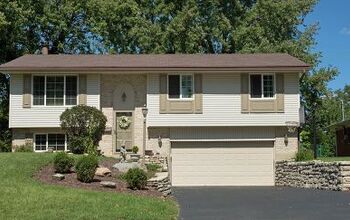
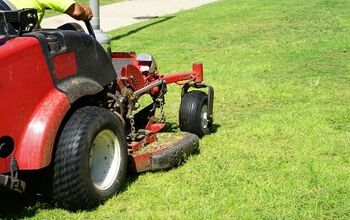

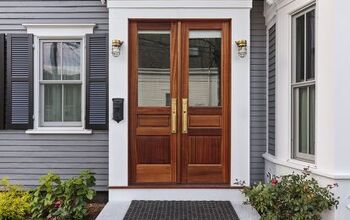
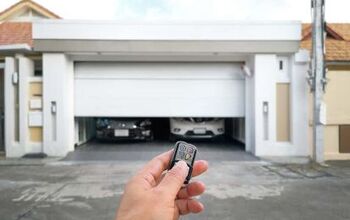

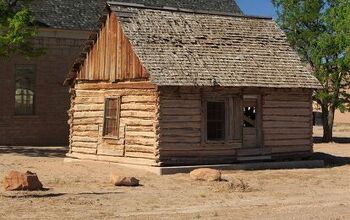
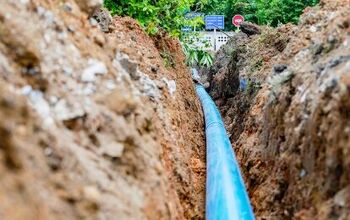
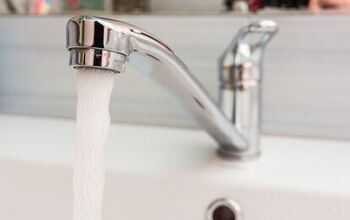

![How To Reset A Whirlpool Cabrio Washer [In 5 Easy Steps!]](https://cdn-fastly.upgradedhome.com/media/2023/07/31/9076531/how-to-reset-a-whirlpool-cabrio-washer-in-5-easy-steps.jpg?size=350x220)
